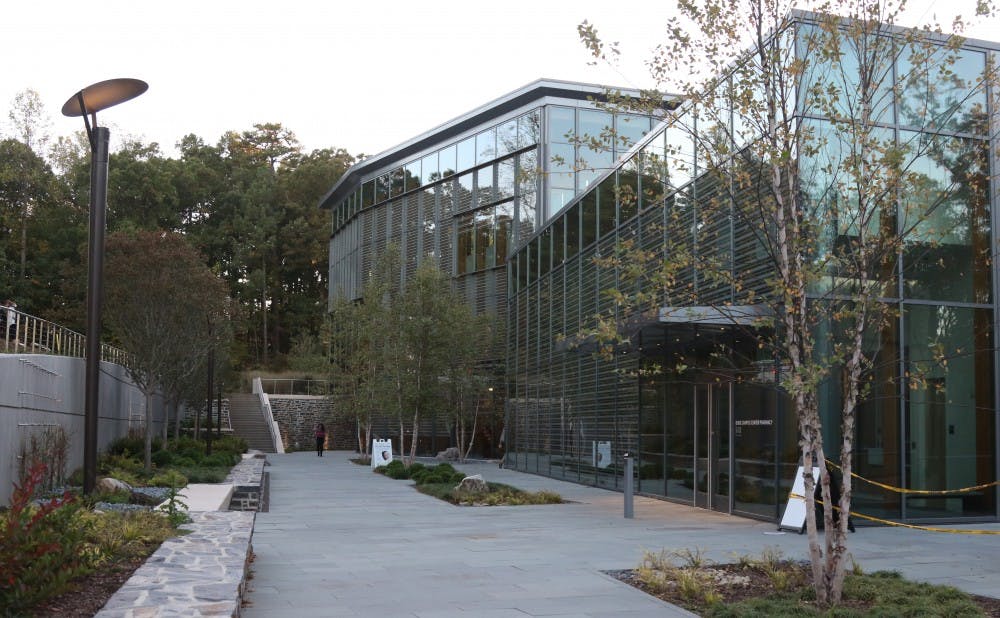Social distancing and stay-at-home orders can pose unique mental-health challenges, but groups of Duke students and staff are doing their best to help.
During the coronavirus pandemic and corresponding social-distancing measures, student groups and university departments are making a concerted effort to ensure access to mental health resources and keep students socially connected. The steps range from virtual mental-health services to resource guides and a service that lets students send each other kind messages.
Student Affairs announced April 1 that all degree-seeking Duke students would have free access to Blue Devils Care: additional remote services to those provided by Counseling and Psychological Services and Student Health. Blue Devils Care has a feature called TalkNow, which allows students to speak with mental health providers at any time. The service also allows students to schedule counseling sessions.
According to the program’s website, Blue Devils Care is open to all degree-seeking students residing in the United States.
Additionally, CAPS telehealth services remain available for students residing in North Carolina. Students living in other states may call CAPS to discuss local treatment options.
It’s important to recognize the difficulties that so many students are experiencing right now, said Nicole Heilbron, associate professor in psychiatry and behavioral sciences and vice chair of clinical services for the psychiatry and behavioral sciences department. She described this pandemic as “the loss of what people were planning for and hoping for.”
“We want to acknowledge the stress that this clearly presents, even for someone that was feeling fine and looking forward to wrapping up the school year. This is a stress that a lot of people are going through, in different degrees depending on one’s home circumstances,” Heilbron said.
Moira Rynn, chair for the department of psychiatry and behavioral sciences at the School of Medicine, said students who are struggling should try to find help. She acknowledged that telehealth services may feel different than in-person sessions, but encouraged students to continue even if the first attempt doesn’t feel productive.
“Sometimes it’s not so much about the modality as whether they feel they have a connection with that person,” she said.
Heilbron recommended that students attempt to maintain structure in their daily lives. “Get yourself out of bed, sit down for your classes, get some structure,” she said.
Students and student groups have also helped distribute mental health resources.
The Duke Student Government Academic Affairs committee compiled a guide to remote mental-health resources designed for use by Duke students, faculty and staff. The 13-page document lists hotlines, tips for maintaining general wellness, Duke-specific resources, productivity and academic resources, and resources geared toward specific populations.
Senator Cynthia Dong, a first-year, who spearheaded the creation of the guide, said she hopes the project will help students remember to think about their mental health during this difficult time.
“I think that, especially during quarantine, it’s really hard for students to reach out, and I think that Duke wasn’t fully prepared for that. So I’m hoping that, while Duke is trying to figure out how to better reach students, this guide can be a way for people to start thinking about their mental health,” Dong said.
According to senior Manish Kumar, vice president for academic affairs, the bitly link for the guide had 580 clicks as of Monday.
The student support organization Peer for You has transitioned their confidential coffee chats to a virtual model, according to co-president Olivia Liu. Through Peer for You, any Duke student can schedule a conversation with peer responders.
Liu, a junior, said she thinks Peer for You helps students by allowing solidarity with peers, especially if someone doesn’t feel ready to reach out for professional help.
“Self-isolation can be a very lonely time. We’ve had our normal routine uprooted from our lives, and we have to adjust to a new way of being,” Liu said. “So I think talking to a peer or talking to someone that is going through the same thing as you, and you know won’t judge you and will keep what you say confidential, can be really powerful.”
Senator Nehal Jain, a sophomore, partnered with Student Engagement to start a virtual Blue Devil Mail campaign, inspired by DuWell’s “kindness grams” which were physical notes attached to Kind bars distributed to students while they were on campus.
Through Blue Devil Mail, members of the Duke community can send each other anonymous virtual messages called “kindness grams.” A software program sends the messages to recipients pasted onto fun, colorful graphics. Students are encouraged to send Blue Devil Mail to community members they want to reconnect with, rather than people they still speak to regularly.
Jain wrote in an email that the Blue Devil Mail program is not specifically designed to address mental health issues, but rather to promote positivity and community.
“We hoped that it would encourage a sense of community that we felt many students were missing while practicing social distancing. We wanted everyone to realize how important they are to the Duke community outside of their immediate circle of peers,” Jain wrote.
As of April 13, approximately 500 Blue Devil Mail messages had been sent, and those who received messages were more likely to send one than if they had not received it, Jain said.
Jake Satisky contributed reporting.
Get The Chronicle straight to your inbox
Signup for our weekly newsletter. Cancel at any time.

Anna Zolotor is a Trinity senior and recruitment chair for The Chronicle's 118th volume. She was previously news editor for Volume 117.

